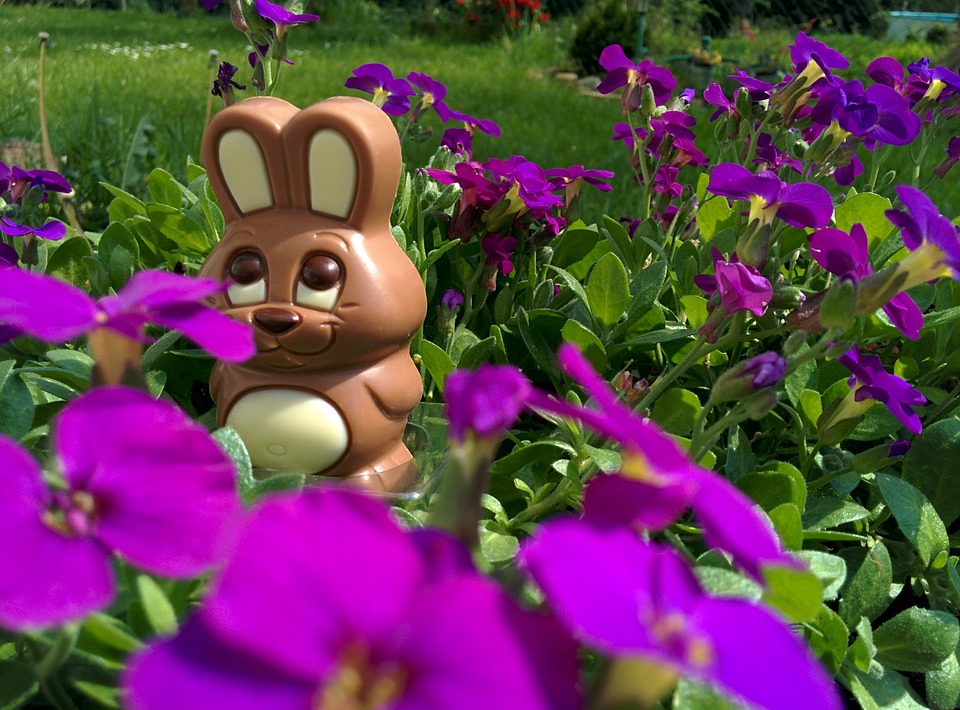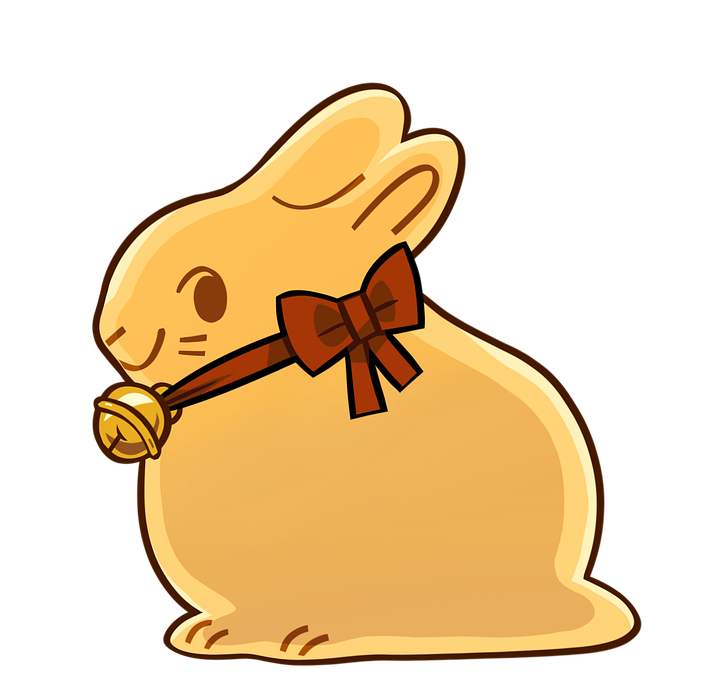Chocolate, a beloved treat for humans, is a strict no-go for our furry friends, rabbits. This article will delve into the reasons why chocolate is harmful to rabbits, exploring the effects of theobromine, the toxic compound found in chocolate. We'll also provide insights into the various types of chocolate and their associated risks, highlighting the severity of the dangers. Finally, we'll address common concerns through a dedicated FAQ section.
Part 1: Why Chocolate is Toxic to Rabbits

1.1 Theobromine: The Culprit Behind Chocolate Toxicity
Theobromine, a naturally occurring compound found in the cacao plant, is the primary culprit behind chocolate's toxicity to rabbits. It acts as a stimulant and is a methylxanthine alkaloid, similar to caffeine. While humans can easily metabolize theobromine, rabbits lack the necessary enzymes to break it down efficiently. This leads to a build-up of theobromine in their system, causing a range of health issues.
1.2 Theobromine's Effects on a Rabbit's Body
The accumulation of theobromine in a rabbit's system can lead to a range of health problems, including:
- Cardiovascular System: Theobromine acts as a stimulant, putting a strain on the rabbit's cardiovascular system. It can increase their heart rate and blood pressure, leading to potential heart problems.
- Gastrointestinal Distress: Theobromine's irritant properties can cause gastrointestinal upset, resulting in vomiting, diarrhoea, and abdominal pain.
- Nervous System Impact: High levels of theobromine can affect the nervous system, leading to tremors, seizures, and muscle weakness.
- Respiratory Distress: In severe cases, theobromine poisoning can impact the respiratory system, leading to difficulty breathing and even respiratory failure.
- Kidney Damage: Theobromine can also damage the kidneys, leading to impaired organ function. This can result in decreased urine production, swelling, and potential kidney failure.
Part 2: Factors Influencing Chocolate Toxicity in Rabbits

2.1 Type of Chocolate
The type of chocolate consumed plays a significant role in the severity of the poisoning.
- Dark Chocolate: This type of chocolate boasts the highest concentration of theobromine, making it the most dangerous for rabbits.
- Milk Chocolate: Milk chocolate contains less theobromine than dark chocolate but is still toxic to rabbits. However, the lower theobromine content makes it slightly less dangerous than dark chocolate.
- White Chocolate: While technically not containing cocoa solids, white chocolate often contains other ingredients, such as milk solids and sugar, which can cause digestive upset in rabbits. Although it has a lower theobromine content than dark or milk chocolate, it's still best to avoid it.
2.2 Amount Consumed
Even a small amount of chocolate can be toxic to a rabbit, with larger quantities posing a much greater risk. A single bite of dark chocolate can be enough to cause serious health problems.
2.3 Rabbit's Size
Smaller rabbits are more susceptible to the effects of theobromine because their bodies have a smaller capacity to process it. A tiny amount of chocolate that might be harmless to a large rabbit could be fatal to a smaller breed.
2.4 Rabbit's Health
Rabbits with pre-existing health conditions may be more vulnerable to chocolate poisoning. They may not be able to cope with the added stress on their system, making the effects of theobromine even more severe.
Part 3: Recognising the Signs of Chocolate Poisoning in Rabbits
Recognising the signs of chocolate poisoning is crucial for prompt veterinary care. Early detection can significantly improve the chances of a successful recovery. Watch out for the following symptoms:
- Increased thirst: Rabbits may drink excessively due to dehydration caused by theobromine's impact on their kidneys.
- Vomiting: This is a common symptom of chocolate poisoning and is often accompanied by diarrhoea.
- Diarrhoea: Theobromine irritates the digestive system, leading to loose stools or diarrhoea.
- Restlessness: Theobromine acts as a stimulant, making rabbits restless and agitated.
- Tremors: These tremors are caused by the theobromine's effect on the nervous system and can range from slight shaking to severe convulsions.
- Seizures: In more severe cases, rabbits may experience seizures, resulting from the nervous system's disruption by theobromine.
- Rapid breathing: Theobromine can also affect the respiratory system, leading to difficulty breathing.
- Lethargy: Despite being a stimulant, theobromine can also cause lethargy and weakness, making rabbits appear tired and sluggish.
- Loss of appetite: Rabbits may refuse to eat due to gastrointestinal upset, abdominal pain, or general discomfort.
- Abdominal pain: Rabbits may show signs of abdominal pain, such as hunched posture, reluctance to move, and vocalisation.
Part 4: What to Do if Your Rabbit Eats Chocolate
If you suspect your rabbit has ingested chocolate, act quickly and seek immediate veterinary attention. The sooner you act, the better the chances of recovery.
4.1 Emergency Veterinary Care
A veterinarian can assess the severity of the poisoning and recommend appropriate treatment. Treatment may involve:
- Inducing Vomiting: This is usually done within a few hours of ingestion to remove the chocolate from the rabbit's stomach, minimizing the amount of theobromine absorbed. However, inducing vomiting in rabbits can be risky and should only be done under a veterinarian's guidance.
- Administering Activated Charcoal: Activated charcoal can bind to the theobromine in the digestive system, preventing its absorption into the bloodstream.
- Providing Supportive Care: This may involve fluids and medications to address symptoms like dehydration, vomiting, and diarrhoea. Fluids are essential to prevent dehydration, and medications can help manage gastrointestinal upset.
- Monitoring and Observation: Your rabbit may require monitoring and hospitalization for several hours or days to ensure their condition stabilizes. Veterinarians will closely monitor their vital signs and provide necessary care.
4.2 Prevention is Key
The best way to protect your rabbit from chocolate poisoning is to prevent them from accessing chocolate altogether.
- Store chocolate securely: Keep chocolate out of reach of rabbits, preferably in sealed containers or cabinets that are inaccessible to them.
- Supervise your rabbit: Never leave your rabbit unsupervised around chocolate or chocolate-containing foods. Be especially vigilant during holiday seasons or gatherings where chocolate is abundant.
- Educate others: Make sure all members of your household, including children, are aware of the dangers of chocolate to rabbits. Explain that even a small amount can be harmful and should never be shared with your rabbit.
Part 5: Safe Alternatives to Chocolate for Rabbits
While chocolate is a no-go, there are plenty of safe and delicious treats you can offer your rabbit. Choose fresh, natural foods that are suitable for their diet.
- Fresh fruits and vegetables: Apples, bananas, carrots, celery, and parsley are excellent choices. However, offer these in moderation and be mindful of potential sugar content.
- Rabbit-safe herbs: Parsley, cilantro, and basil are popular choices. These herbs offer additional flavour and nutrients to their diet.
- Commercial rabbit treats: Look for treats specifically designed for rabbits, free from chocolate and other harmful ingredients. Read the labels carefully to ensure they are safe and appropriate for your rabbit's diet.
- Hay and grass: These are essential components of a rabbit's diet and provide them with essential nutrients, fibre, and dental health benefits.
Part 6: Understanding theobromine Content in Different Chocolate Types
The concentration of theobromine varies in different chocolate types. Here's a breakdown:
- Dark Chocolate: Contains the highest concentration of theobromine, with 7-12 mg per gram.
- Milk Chocolate: Contains a lower theobromine concentration, typically around 1-5 mg per gram.
- White Chocolate: Has significantly lower theobromine content, often less than 1 mg per gram. However, it might contain other potentially harmful ingredients for rabbits.
Part 7: The Long-Term Effects of Chocolate Consumption
While immediate symptoms of chocolate poisoning are important, the long-term effects should not be overlooked. Theobromine can accumulate in a rabbit's system and cause long-term health problems.
- Chronic Kidney Disease: Repeated exposure to theobromine can put a strain on the kidneys, leading to chronic kidney disease.
- Cardiovascular Issues: Theobromine can lead to heart problems and high blood pressure, potentially causing serious cardiovascular complications in the long run.
- Nervous System Damage: Chronic exposure to theobromine can result in neurological damage, affecting their behaviour and coordination.
Part 8: Frequently Asked Questions (FAQs)
8.1 What if My Rabbit Only Ate a Tiny Bit of Chocolate?
Even a small amount of chocolate can be toxic to a rabbit. It's always best to err on the side of caution and seek veterinary advice.
8.2 Can I Give My Rabbit Chocolate-Flavoured Treats?
No, chocolate-flavoured treats can still contain theobromine or other harmful ingredients. It's best to stick to rabbit-safe alternatives.
8.3 Is It Safe to Give My Rabbit Chocolate-Flavoured Yogurt?
No, chocolate-flavoured yogurt, even if it's marketed for humans, can contain chocolate and is therefore unsafe for rabbits.
8.4 How Long Does Theobromine Stay in a Rabbit's System?
Theobromine can remain in a rabbit's system for several hours, even days, depending on the amount consumed and the rabbit's size and health.
8.5 What If My Rabbit Doesn't Show Any Symptoms Right Away?
Even if your rabbit doesn't display symptoms immediately, theobromine can still be affecting their internal organs. It's essential to seek veterinary attention as soon as possible.
8.6 Can I Give My Rabbit Chocolate Milk?
No, chocolate milk contains theobromine and is unsafe for rabbits.
8.7 Is It Safe to Give My Rabbit Chocolate-Flavoured Water?
No, chocolate-flavoured water is not safe for rabbits. It can still contain theobromine or other harmful ingredients.
Remember, it's crucial to protect your rabbit from chocolate. Always keep chocolate out of reach and seek immediate veterinary attention if you suspect your rabbit has ingested it.
Everyone is watching
-

Do Rabbits Lay Eggs? (The Surprising Truth)
OTHER TYPES OF PETSThis article will unravel the common misconception that rabbits lay eggs, exploring the fascinating world of r...
-

What's a Group of Rabbits Called? (A Comprehensive Guide)
OTHER TYPES OF PETSThis article delves into the fascinating world of rabbits, exploring the various terms used to describe a grou...
-

Can Rabbits Eat Grapes? A Guide to Safe Rabbit Treats
OTHER TYPES OF PETSThis comprehensive guide will explore the safety and suitability of grapes for rabbits, providing detailed inf...
-

Predators That Hunt Rabbits: A Guide to Natural Enemies
OTHER TYPES OF PETSI've always been fascinated by the circle of life, that delicate dance between predator and prey. Growing up ...
-

Are Rabbits Nocturnal Animals?
OTHER TYPES OF PETSThe question of whether rabbits are nocturnal animals is a fascinating one, with a surprisingly complex answer...
